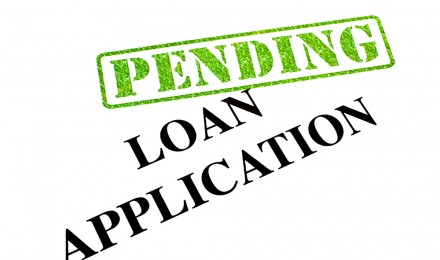You have no friends or family members. With money, that is. You don’t have any money, either. So there’s no one to lend you the funds necessary to buy your investment property.
So what can you do? The answer is obviously a loan. But what kind of one?
Almost everyone will tell you to shop around for the best loan rate. This is, of course, a temptation but perhaps one that is not always the answer. Or the best answer, that is.
Not all loans are the same, of course. Some financial institutions let you relock your loan rates regularly (sometimes as often as you like). This can obviously help you cope with changing conditions in the market.
Closing costs are also a consideration. They also vary, of course.
Some places also offer special discounted rates over a certain loan amount.
The first thing to do is find your credit. It’s almost certainly best for you to provide the lender yourself with this information, experts agree. Credit scores are often wrong, so you want to find this out immediately and correct any mistakes. If your score is low, this is a chance to improve it. Lenders will find out any secrets you have, anyway, and candor here may at times help.
Pitfalls to avoid, according to experts in the field:
—Taking on a larger loan than you can handle because it has lower interest rates. This is perhaps the most common problem, but it is also the most avoidable if you crunch the numbers (I know, this is not your favorite activity, but get some help if necessary).
—When it comes to your loan amount, consider other money factors such as homeowners insurance but particularly maintenance costs. If it’s a single home you are buying, for example, these expenses alone average about 1% a year, which quickly adds up.
—Whatever else a lender promises, count on the deal being complicated and possibly hard to understand. Interest rates may go up or down, depending on the loan.
—Did you think to check the service of your lender? No matter how cheap the rate is, you certainly don’t want a rigid lender who offers poor or no service, and who perhaps is not inclined to renegotiate during changing times (say a housing downtown).
—Don’t fall in love with a property. This happens more often than you think, even with hard-headed investors who claim to be looking only at the bottom line: earning a profit. No detours allowed.
—Did you check the lenders reputation by asking friends or relatives (sure, they have no money but maybe they used to, or maybe they have had past dealings with the lender). If not friends, try others or ask for past customers.
—Afraid to shop around? Please, don’t even think about not doing it.
—Adjustable, fixed rate? Know the differences. Be sure of understanding all the terms. Never be afraid to ask questions even if the answers seem obvious.
Always remember it’s your money at risk. Not really anyone else’s.
You have no friends or family members. With money, that is. You don’t have any money, either. So there’s no one to lend you the funds necessary to buy your investment property.
So what can you do? The answer is obviously a loan. But what kind of one?
Almost everyone will tell you to shop around for the best loan rate. This is, of course, a temptation but perhaps one that is not always the answer. Or the best answer, that is.
Not all loans are the same, of course. Some financial institutions let you relock your loan rates regularly (sometimes as often as you like). This can obviously help you cope with changing conditions in the market.
Closing costs are also a consideration. They also vary, of course.
Some places also offer special discounted rates over a certain loan amount.
The first thing to do is find your credit. It’s almost certainly best for you to provide the lender yourself with this information, experts agree. Credit scores are often wrong, so you want to find this out immediately and correct any mistakes. If your score is low, this is a chance to improve it. Lenders will find out any secrets you have, anyway, and candor here may at times help.
Pitfalls to avoid, according to experts in the field:
—Taking on a larger loan than you can handle because it has lower interest rates. This is perhaps the most common problem, but it is also the most avoidable if you crunch the numbers (I know, this is not your favorite activity, but get some help if necessary).
—When it comes to your loan amount, consider other money factors such as homeowners insurance but particularly maintenance costs. If it’s a single home you are buying, for example, these expenses alone average about 1% a year, which quickly adds up.
—Whatever else a lender promises, count on the deal being complicated and possibly hard to understand. Interest rates may go up or down, depending on the loan.
—Did you think to check the service of your lender? No matter how cheap the rate is, you certainly don’t want a rigid lender who offers poor or no service, and who perhaps is not inclined to renegotiate during changing times (say a housing downtown).
—Don’t fall in love with a property. This happens more often than you think, even with hard-headed investors who claim to be looking only at the bottom line: earning a profit. No detours allowed.
—Did you check the lenders reputation by asking friends or relatives (sure, they have no money but maybe they used to, or maybe they have had past dealings with the lender). If not friends, try others or ask for past customers.
—Afraid to shop around? Please, don’t even think about not doing it.
—Adjustable, fixed rate? Know the differences. Be sure of understanding all the terms. Never be afraid to ask questions even if the answers seem obvious.
Always remember it’s your money at risk. Not really anyone else’s.








